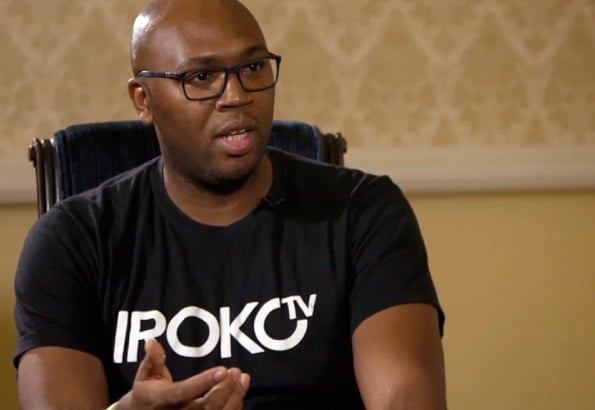Founder of iROKOtv, Jason Njoku, has reflected on the streaming platform’s tumultuous 15-year journey, acknowledging its failure and describing the company’s $100 million investment in the local market as a costly miscalculation.
In a blog post titled ‘Streaming in Nigeria. Did the Market Win?’ that’s currently gaining renewed attention amid a debt crisis that led to a court-ordered freeze on his bank accounts, Njoku disclosed that despite spending over $100 million in a decade, the company was in constant survival mode. Launched in 2011, iROKOtv prided itself as the ‘Netflix of Africa’ and was backed by early investor, Tiger Global, which had also placed bets on Netflix, IVI (Russia), YY (China), and Netmovies (Brazil). The platform was tasked with leading the charge into Nigeria’s emerging digital content space.
But, according to Njoku, the local market never matured fast enough to support the model. He wrote: “We launched in 2011, but waited until 2015 to aggressively target Nigeria and Africa. By then, we had raised $35 million and generated substantial diaspora revenue. Yet, despite spending over $100 million in a decade, we were in constant survival mode.”
Njoku went on to cite persistent infrastructure and economic hurdles – from expensive data to limited payment systems – as obstacles that made scaling nearly impossible.
Despite iROKOtv’s early-mover advantage and relentless grassroots expansion, global competitors like Netflix, Showmax, Amazon and Iflix outspent and outlasted the company, collectively investing over $1 billion from 2015 to 2023.
“Streaming is a scale game,” Njoku shared. “And in Africa, it’s incredibly expensive across marketing, content, delivery, and platform.”
However, the turning point came in 2019. Njoku attempted a $10–$20 million fundraise, partnering with Stanbic IBTC to pitch institutional investors. But the feedback was sobering.
“They didn’t see a viable market. The economics didn’t add up. What they really wanted was ROK – our content and TV channels business,” he posted.
That same year, iROKO sold its stake in ROK Studios to Vivendi/Canal+ in a $25 million deal. The move allowed the company to distribute a $5 million special dividend and prepare for global growth. But the optimism was short-lived.
The COVID-19 pandemic brought a temporary surge in Western subscriptions, but in Nigeria, economic instability, border closures and FX challenges decimated the business.
“We kept doubling down, burning through most of the post-exit capital,” Njoku admitted. “Eventually, we raised just $1.1 million in convertible notes before finally accepting defeat.”
By 2023, iROKOtv had exited Nigeria completely, halting all naira transactions and shifting focus elsewhere. “Nigeria’s GDP per capita – then $2,000 – simply couldn’t sustain a $5/month streaming product. Even now, I doubt 250,000 people in Nigeria can afford that consistently,” Njoku stated, pointing to the struggles of DStv and GOtv as further evidence.
In hindsight, the entrepreneur believes that iROKOtv could have learned the same hard lessons with just $5–10 million, rather than the $100 million ultimately invested.
“Streaming wasn’t the winning model for Nollywood. Content, channels, and distribution were. We should have shut iROKOtv in 2018, saving $5 million a year in losses. But I was a believer – and that belief cost millions.”
Njoku ended with a broader warning to startup founders: avoid over-raising, and be brutally honest about unit economics.
Citing the downfall of Kobo360 and financial struggles of even the largest players like MultiChoice, he declared: “Nigeria is currently a massive drag on MultiChoice’s business. Their latest H1 report shows that. And remember – this is the biggest pay-TV platform in Africa, now being acquired in a $2.8 billion deal.”

